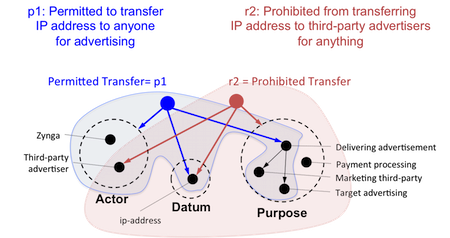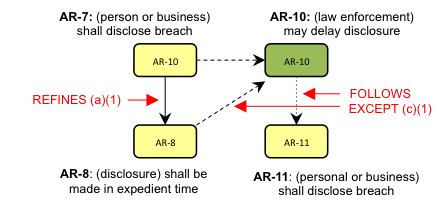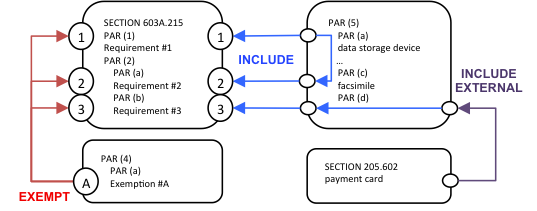Eddy Privacy Requirements Specification Language
The Eddy language provides syntax for expressing data use and disclosure policies within an organization or their business units. The policies are expressed in Description Logic and consist of rules based on rights, obligations and prohibitions; notions borrowed from Deontic Logic and Hohfeld's legal taxonomy. The tools supporting Eddy provide techniques for verifying important privacy principles within a single policy and across a collection of policies that govern a data supply chain. The tools also provide fundamental conflict detection capabilities necessary to approach resolution with other stakeholders.

Example conflict based on shared interpretation |
Access to Eddy source code and examples are available via the GitHub site and an online demo is available at the project website. For an an empirical case study using Eddy, see our REJ paper.
Legal Requirements Specification Language (LRSL)
The LRSL provides syntax for encoding regulations and policies into logical formula to enable systematic analysis. The LRSL maintains traceability between propositions in the logic and the original legal text, in addition, to encoding several types of relationships and cross-references between and among requirements. The parser generates different representations of the encoded requirements, including XML, HTML and GraphML for use with other third-party tools. The parser and associated analytics are written in Java.

Select requirements cross-linked and displayed in GraphML |

Tracing logical conditions & constraints across legal documents |
Access to the LRSL is presently offered by request under a research license. Contact us for more information. For examples from a case study, see our REFSQ'13 paper.